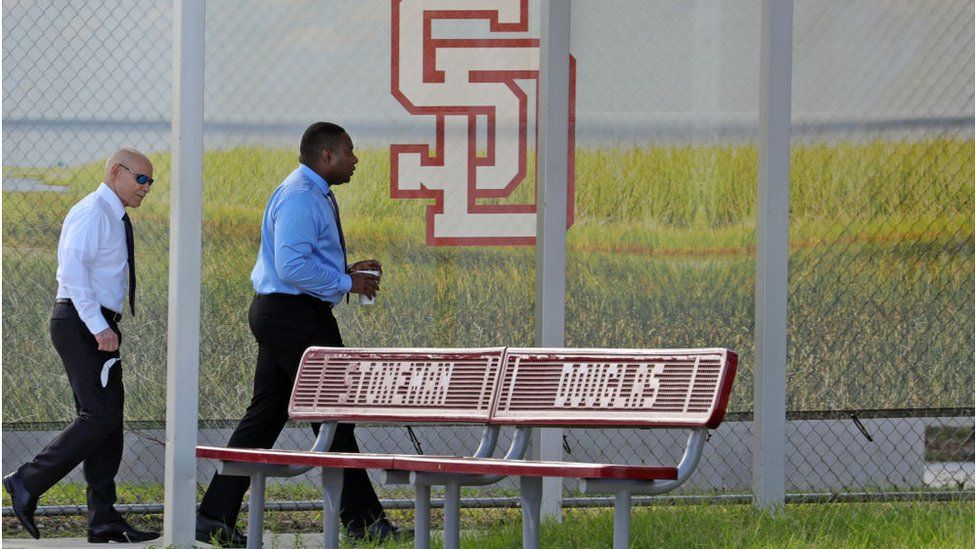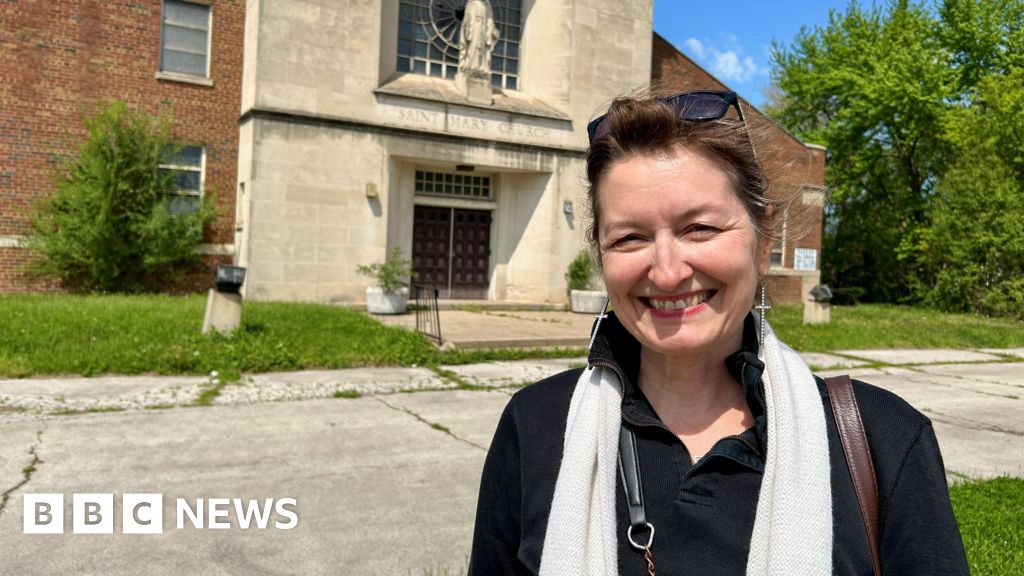ARTICLE AD BOX
By Max Matza
BBC News
 Image source, Getty Images
Image source, Getty Images
Jurors toured the preserved school crime scene earlier this month
Lawyers for a Florida school gunman have asked a jury to spare him the death penalty, arguing his "brain was irretrievably broken" owing to a difficult childhood.
Nikolas Cruz, 23, pleaded guilty last year to killing 17 people at Marjory Stoneman Douglas High School in Parkland, Florida, on 14 February 2018.
The trial will determine whether he is put to death or jailed for life.
The case is the deadliest mass shooting to reach a jury trial in the US.
On Monday Melisa McNeil, Cruz's lead lawyer, cited foetal exposure to drugs and alcohol while in his mother's womb as a contributing factor in the massacre.
"Because of that, his brain was irretrievably broken, through no fault of his own," she said, calling him a "damaged person", and describing his run-ins with school officials and police throughout his childhood in an adopted home.
"We must understand the person behind the crime," Ms McNeil told the jury of seven men, five women and 10 alternate jurors.
When the trial began on 18 July, prosecutors argued that the defendant deserved to die for the "goal-directed, planned, systematic murder - mass murder - of 14 students, an athletic director, a teacher and a coach".
Jurors were shown gruesome video evidence from the crime scene, as well as video of the attacker calmly ordering a drink from a nearby shop minutes after the massacre, and later of him attacking a guard in jail.
They were also taken to the fenced-off school building where they toured the preserved crime scene. Balloons and cards for Valentine's Day were still scattered around the freshman building where Cruz fired around 150 shots from a semi-automatic rifle.
"Our kids died in the Parkland school shooting, but we disagree on guns"
In her defence arguments, Ms McNeil argued that the origin of the seven-minute massacre began years earlier, when her client's biological mother was working as a drug-addicted prostitute.
The first defence witness on Monday was a recovering addict who said she worked as a prostitute with Cruz's late birth mother, Brenda Woodard, in the 1990s when she became pregnant with the boy.
Carolyn Deakins said Woodard had abused cocaine, marijuana, alcohol and tobacco throughout her pregnancy, and that "she didn't care" because she planned to put the baby up for adoption.
Cruz's adopted father died shortly after he came into the home, and his adopted mother, Lynda Cruz, had ignored troubles he was having at school, his lawyer argued.
She removed him from psychiatric programmes that could have helped him curtail the violent episodes he was having as a young child in pre-school, Ms McNeil said.
Lynda Cruz, who died several months before the attack, bought him a BB gun and airgun before getting him a rifle for his 18th birthday.
Deeply in debt after her husband's death, she had refused to have the troubled youth committed to a mental hospital because she did not want to stop receiving his Social Security benefits cheque each month, according to Ms McNeil.
At the time of his guilty plea last October, Cruz said he was "very sorry" for the shooting.
All 12 jurors must vote unanimously in order for him to be put to death.

 2 years ago
482
2 years ago
482








 English (US) ·
English (US) ·